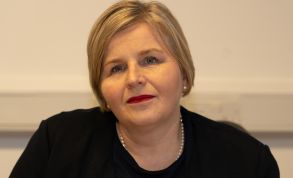Maternity review highlights need for more staff and funding

The report was commissioned in 2017 by then health secretary Jeremy Hunt after concerns were raised by bereaved families and others. Led by senior midwife Donna Ockenden, it examined nearly 1,600 clinical incidents between 2000 and 2019, and concluded that repeated failures in maternity care had led to babies dying during or shortly after birth. In many cases, mothers and babies were left with life-long conditions.
The report identified hundreds of cases where the trust did not carry out serious incident investigations, including cases where deaths were not appropriately examined. Investigations that did take place failed to meet standards and did not identify areas for improvements in care.
Ms Ockenden said the reasons for the failures were clear. ‘There were not enough staff, there was a lack of ongoing training, there was a lack of effective investigation and governance at the trust and a culture of not listening to the families involved. There was a tendency of the trust to blame mothers for their poor outcomes, in some cases even for their own deaths,’ she said.
She was astounded that the issues had not been raised internally or externally, highlighting the need for systemic change locally and nationally to ensure families always receive compassionate and professional care.
‘Going forward, there can be no excuses. Trust boards must be held accountable for the maternity care they provide. To do this, they must understand the complexities of maternity care and they must receive the funding they require,’ she added.
An interim report issued in December 2020 had recommended learning points for the trust and local commissioners, as well as immediate and essential actions for maternity services across England. Today’s final report includes more than 60 local actions in areas such as improving management of patient safety and complaints, multidisciplinary working, and staffing.
It also sets out 15 immediate and essential actions for all maternity services in England. These include a call for NHS England to finance a multi-year investment plan ‘to ensure the provision of a well-staffed workforce’, with minimum staffing levels adhered to once agreed nationally and locally. Escalation and mitigation policies for when minimum staffing levels are not met should be established.
Workforce funding
NHS England should fund a recruitment and retention drive to address understaffing, Ms Ockenden said. ‘We acknowledge last week’s funding announcement of £127m by NHS England for maternity services, but this is still significantly short of the £200m-£350m recommended by the [Commons] Health and Social Care Select Committee in June 2021.’
The estimate of £200m-£350m was made by NHS Providers, which said the report should be a turning point for NHS maternity care. Progress had been made over the last decade but there was more to do, according to deputy chief executive Saffron Cordery.
Funding for more staff was essential. ‘Trusts have told us that they are concerned that they will not be able to recruit sufficient staff to meet the standards outlined within the report, demonstrating the vital need for the government to tackle this issue as soon as possible,‘ Ms Cordery added.
The report said staff training time should be protected, including for refresher courses and multidisciplinary team training, particularly for emergency drills. Boards should work with maternity departments to ensure they receive regular reviews to give assurance that planned developments are being implemented. The review also recommended improvements in postnatal care for women and in the care of bereaved families.
‘The legacy of this review should be a maternity service across England that is appropriately funded, well-staffed, trained, motivated and compassionate and willing to learn from failings in care,’ Ms Ockenden added.
 Health and social care secretary Sajid Javid (pictured) said: ‘Donna Ockenden’s report paints a tragic and harrowing picture of repeated failures in care over two decades, and I am deeply sorry to all the families who have suffered so greatly.
Health and social care secretary Sajid Javid (pictured) said: ‘Donna Ockenden’s report paints a tragic and harrowing picture of repeated failures in care over two decades, and I am deeply sorry to all the families who have suffered so greatly.
‘Since the initial report was published in 2020 we have taken steps to invest in maternity services and grow the workforce, and we will make the changes that are needed so that no families have to go through this pain again.’
Offering wholehearted apologies, the Shrewsbury trust’s chief executive Louise Barnett said the report was ‘deeply distressing’. The trust had implemented the recommendations of the first report, she added.
‘We know that we still have much more to do to ensure we deliver the highest possible standard of care to the women and families we care for. Now that we have received the final report, we will approach the requirements with the focus and resolve we brought to the initial recommendations.
‘We owe it to those families we failed, those we care for today and in the future, and our valued colleagues providing that care, to continue to make the necessary improvements so we are delivering the best possible care for the communities we serve.’
Related content
We are excited to bring you a fun packed Eastern Branch Conference in 2025 over three days.
This event is for those that will benefit from an overview of costing in the NHS or those new to costing and will cover why we cost and the processes.